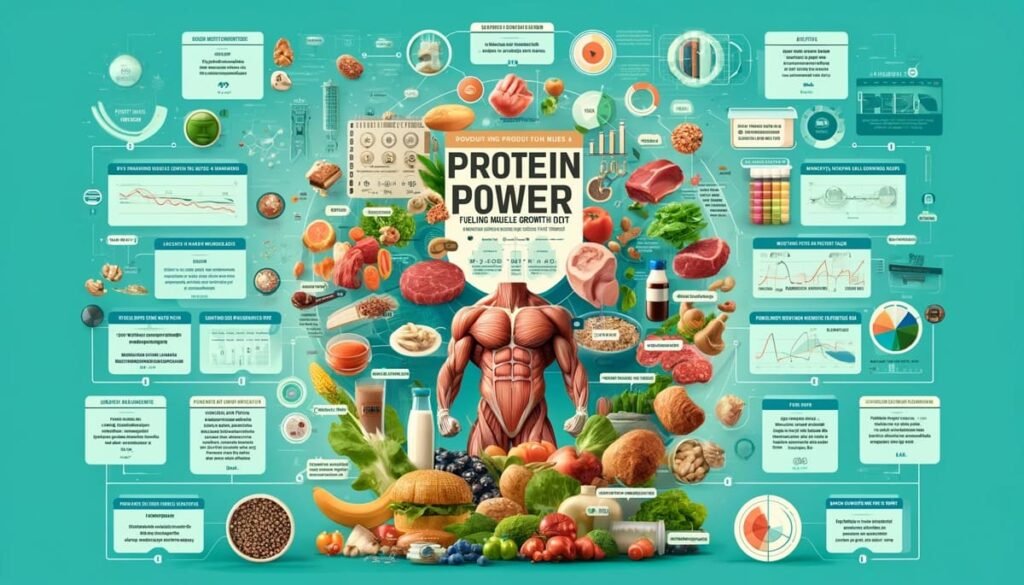
Protein is a fundamental nutrient for muscle building, playing a crucial role in the repair, maintenance, and growth of muscle tissues. Understanding how protein supports muscle development can help you optimize your fitness regimen and dietary choices.
The Role of Protein in Muscle Building
- Muscle Protein Synthesis (MPS): Protein consumption is essential for muscle protein synthesis, the process by which the body repairs and builds muscle fibers. Dietary proteins are broken down into amino acids, which are then used to form new proteins in muscle cells. This process is crucial after workouts, as exercise causes small tears in muscle fibers that need to be repaired.
- Hormonal Support: Eating sufficient protein helps maintain a favorable environment for muscle growth by influencing the balance of hormones that impact muscle metabolism, including insulin, growth hormone, and the IGF-1 (Insulin-like Growth Factor-1). These hormones play a role in promoting MPS and overall muscle health.
- Preventing Muscle Breakdown: Adequate protein intake is not only important for building muscle but also for preventing muscle breakdown. During periods of intense training or caloric deficit, the body can start to break down muscle tissue for energy. Consuming enough protein helps counteract this catabolic process by providing the necessary amino acids to maintain muscle mass.
- Enhanced Recovery: Protein helps speed up recovery by reducing muscle damage and promoting the replenishment of glycogen stores, which are used up during physical activity. This quicker recovery allows for more frequent and intense training sessions, facilitating greater muscle growth over time.
How Much Protein Do You Need?
The amount of protein needed for muscle building can vary based on several factors, including your age, sex, weight, and the intensity of your exercise regimen. General guidelines suggest:
- For general health: 0.8 grams of protein per kilogram of body weight per day.
- For muscle building and intensive training: 1.6 to 2.2 grams per kilogram of body weight per day, as recommended by sports nutritionists.
Best Sources of Protein for Muscle Building
- Animal-Based Proteins: Include meats, poultry, fish, and dairy products. These sources provide all essential amino acids in optimal ratios.
- Plant-Based Proteins: Include legumes, nuts, seeds, and whole grains. Plant-based diets might require a combination of protein sources to meet all amino acid needs.
FAQs About Protein and Muscle Building
Q. Can I build muscle just by eating protein?
A. While protein is essential; muscle growth also requires regular strength training and overall caloric intake that supports muscle gain.
Q. Is there a risk of eating too much protein?
A. Excessive protein intake can lead to digestive, renal, and vascular issues among others. It’s important to balance your diet and not consume protein far in excess of what your body needs.
Q. How soon should I eat protein after a workout?
A. It’s recommended to consume protein within a couple of hours after exercise to maximize muscle repair and growth. A protein shake or a meal containing protein can suffice.
Q. Does the type of protein matter?
A. While all types of protein can contribute to muscle repair, complete proteins (which contain all essential amino acids) are more beneficial for immediate muscle recovery and growth.
Understanding the importance of protein in muscle building can help you make informed dietary choices to complement your fitness goals. Incorporating adequate protein into your diet along with a balanced exercise regimen will optimize muscle growth and overall physical health.